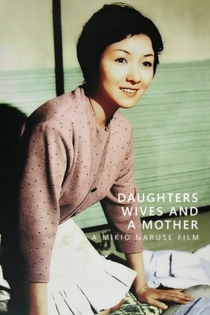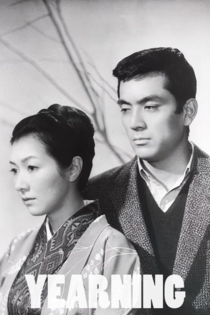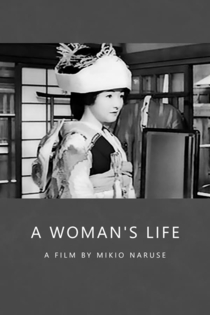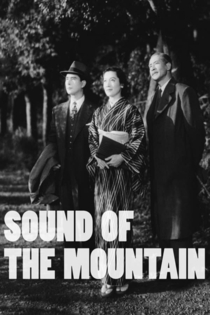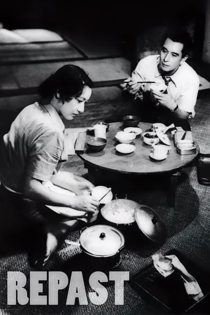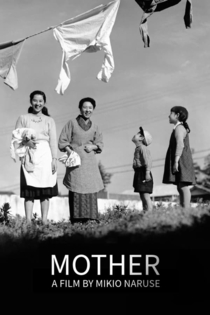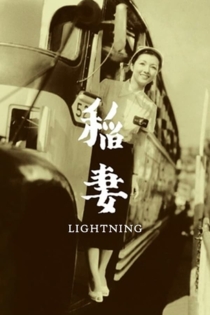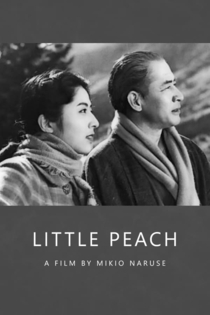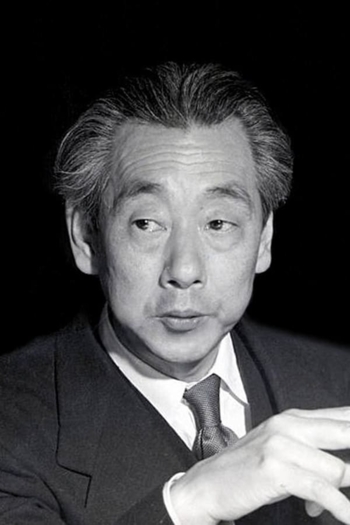
Mikio Naruse
1905 - 1969Naruse is known for imbuing his films with a bleak and pessimistic outlook. He made primarily shomin-geki (working-class drama) films with female protagonists, portrayed by actresses such as Hideko Takamine, Kinuyo Tanaka, and Setsuko Hara. Because of his focus on family drama and the intersection of traditional and modern Japanese culture, his films are frequently compared with the works of Yasujirō Ozu. His reputation is just behind Akira Kurosawa, Kenji Mizoguchi, and Ozu in Japan and internationally; his work remains less well known outside Japan than theirs.
Akira Kurosawa called Naruse's style of melodrama, "like a great river with a calm surface and a raging current in its depths".
Description above from the Wikipedia article Mikio Naruse, licensed under CC-BY-SA, full list of contributors on Wikipedia.
When a Woman Ascends the Stairs
Mikio Naruse
Hideko Takamine, Masayuki Mori
Keiko, whom everyone calls Mama, narrates her story: she's a hostess on the Ginza, 30, a widow. She describes life's vicious cycle: acting cheerful around drunks, dressing and living well to convey confidence, needing money for these expenses and for her demanding mother and brother, and knowing she's growing older. She's of an age when she must choose: to seek marriage (difficult given her tarnished occupation), to be a kept woman, or to borrow money to buy a bar of her own. Each route has dangers, including investors demanding a return on their loans. Keiko has a quiet dignity that attracts men, but are they what they seem? Does she actually have choices?
When a Woman Ascends the Stairs
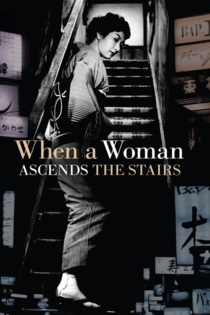
Two in the Shadow
Mikio Naruse
Yûzô Kayama, Yôko Tsukasa
A man is involved in a fatal car accident, and though he is blameless, his company transfers him to a remote branch in a small town. Before he leaves, he gives the man's widow a large sum of money that she uses to move back to her hometown.
Two in the Shadow
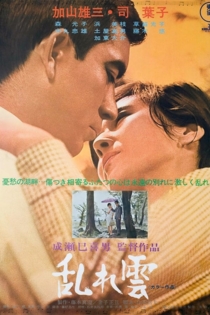
A Wanderer's Notebook
Mikio Naruse
Hideko Takamine, Akira Takarada
Considered one of the finest late Naruses and a model of film biography, A Wanderer’s Notebook features remarkable performances by Hideko Takamine – Phillip Lopate calls it “probably her greatest performance” – and Kinuyo Tanaka as mother and daughter living from hand to mouth in Twenties Tokyo. Based on the life and career of Fumiko Hayashi, the novelist whose work Naruse adapted to the screen several times, A Wanderer’s Notebook traces her bitter struggle for literary recognition in the first half of the twentieth century – her affairs with feckless men, the jobs she took to survive (peddler, waitress, bar maid), and her arduous, often humiliating attempts to get published in a male-dominated culture.
A Wanderer's Notebook
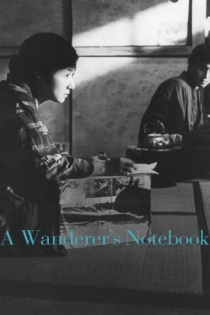
流れる
Mikio Naruse
Kinuyo Tanaka, Isuzu Yamada
Otsuta is running the geisha house Tsuta in Tokyo. Her business is heavily in debt. Her daughter Katsuyo doesn't see any future in her mother's trade in the late days of Geisha. But Otsuta will not give up. This film portraits the day time life of geisha when not entertaining customers.
Flowing
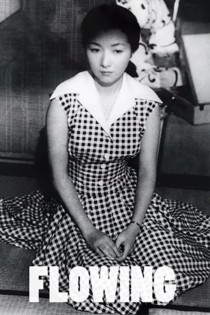
The Approach of Autumn
Mikio Naruse
Nobuko Otowa, Yōsuke Natsuki
A single mother from the country raising a 6th grade boy comes to Tokyo, leaves the boy to live with his uncle's family, runs a struggling grocery store, and works a local inn. The boy befriends a girl, the daughter of the innkeeper...
The Approach of Autumn
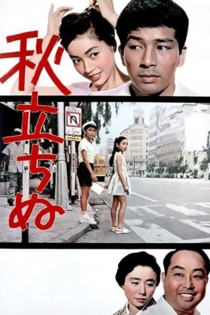
妻よ薔薇のやうに
Mikio Naruse
Sachiko Chiba, Yuriko Hanabusa
Kimiko, a Tokyo white-collar working girl, lives with her serious, intellectual, haiku-writing mother. Kimiko seeks to marry her boyfriend but needs her absent father to act as the go-between and negotiate the marriage. Kimiko travels and finds her father living with a second family.
Wife! Be Like a Rose!
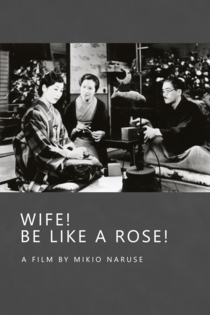
鰯雲
Mikio Naruse
Chikage Awashima, Yôko Tsukasa
A war widow with a young boy manages a farm with her bossy mother-in-law. When a reporter comes to interview her, the two begin an affair. He turns out to be married and won't leave his wife. Her older brother tries to marry off his children and hang on to/ extend his farm through an advantageous marriage in the face of threatened land confiscation and the desire of his children to get comfortable urban jobs instead of the backbreaking work in the paddy fields under parental control.
Summer Clouds
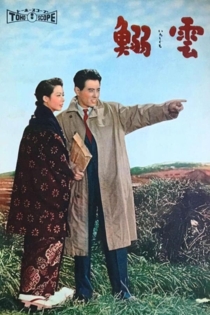
Daughters, Wives and a Mother
Mikio Naruse
Setsuko Hara, Hideko Takamine
Sanae is left a widow after her prestigious husband dies, but holds the proceeds of a million yen insurance policy. Being childless, her former in-laws have no objection to her return to her own family.
Daughters, Wives and a Mother
